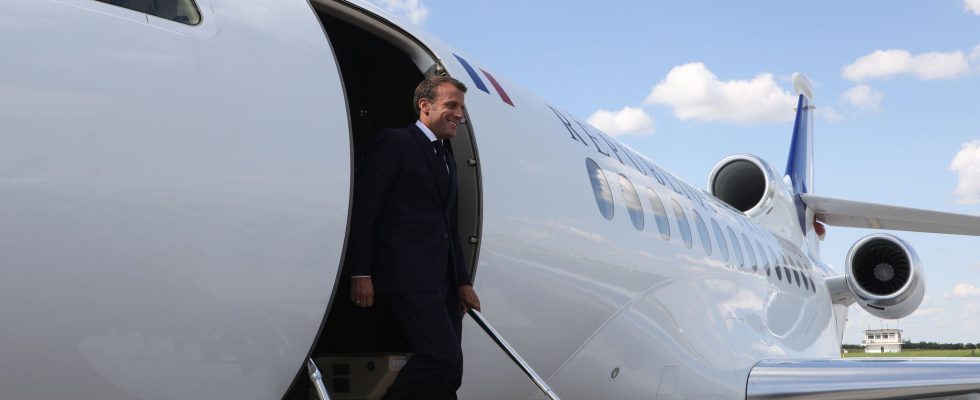It is a state visit which was initially scheduled to take place last October. From this Tuesday, January 30, Emmanuel Macron is going to Sweden “with his wife Brigitte Macron at the invitation of His Majesty the King” Carl XVI Gustaf, in order to strengthen the “excellent” relations between the two countries, announced at the beginning January both countries. The meeting last fall had to be postponed following a jihadist attack which killed two Swedish football fans in Brussels, while France was in mourning by the assassination of a teacher by a young Russian from of Ingush origin radicalized, in a high school in Arras.
This time, the French head of state will go to Stockholm, but in a very different context. Since then, the Turkish Parliament has in fact lifted its veto and validated Sweden’s membership of NATO on January 23, even though Turkey was one of the last two countries in the Alliance to oppose it. . But there remains one last obstacle (and not the least) for the Scandinavian state: Viktor Orban’s Hungary.
Budapest has so far still not officially validated Sweden’s entry into NATO, and is calling on Stockholm to stop its policy of “denigration” towards the Hungarian government, accused of authoritarian drift. However, last week, Viktor Orban reaffirmed his “support” for Swedish membership during a call with NATO chief Jens Stoltenberg, the day after Turkey’s green light. The Hungarian Prime Minister then invited his Swedish counterpart to Hungary to “negotiate” around its entry into NATO.
A way of presenting things that did not really please Sweden, with Swedish Foreign Minister Tobias Billstrom explaining that his country had “no reason” to currently negotiate with Hungary on this subject. Swedish Prime Minister Ulf Kristersson, for his part, favored a meeting with Viktor Orban at the European Council summit in Brussels, this Thursday, February 1.
“Strengthen and promote” historical and “excellent” ties
In addition to this subject, which should therefore be at the heart of discussions between the French and Swedish leaders, this state visit must also contribute “to strengthening and promoting” the historic and “excellent” links between Sweden and France. The Head of State will be accompanied by the presidents of the Foreign Affairs, European Affairs and Defense committees of the National Assembly and the Senate. It must be an opportunity to discuss security issues in the region, while Europe is still groping about the extent of its support for Ukraine in its war against Russia, and an exceptional summit of the European Council is therefore being held this week in Brussels to finally achieve support for kyiv after the Hungarian veto last December.
Defense issues should also be addressed by the French president this Tuesday afternoon, who will give a speech to young Swedish officers from the Karlberg Military Academy. Sweden “is a country which has the same vision of sovereignty as France” with “the desire to develop capabilities over a very broad spectrum, whether operational and industrial capabilities”, says an advisor to the French president, emphasizing a common approach to the need to enter into a “war economy”. France and Sweden must therefore sign a declaration of intent on anti-aircraft defense and air surveillance systems, while the Saab and MBDA companies are expected to conclude “in the coming days a contract on the development of the Akeron anti-tank missile” , according to Paris.
22 billion euros in trade
The other major theme of this state visit, the first by a French president to Sweden since that of Jacques Chirac in 2000, is innovation “facing the challenge of the green and digital transition”, explains the entourage of ‘Emmanuel Macron. The latter will visit on Wednesday, in Lund in the south of Sweden, the European Spallation Source (ESS), a scientific research facility on neutrons co-financed by France with twelve other European countries. The strengthening of cooperation in civil nuclear power, and that of commercial relations already flourishing with exchanges worth 22 billion euros, will also be on the agenda.
Emmanuel Macron will finally end his visit to the University of Lund, in the south of the country, where he will finally discuss with students “the challenges of resilience of European democratic societies”, less than five months before the European elections. Hoping that the images of the anger of the agricultural world and the tractors on the highways blocking Paris and the rest of the country do not contrast too strongly with those of the splendor of the receptions by King Carl XVI Gustaf and Queen Silvia.
